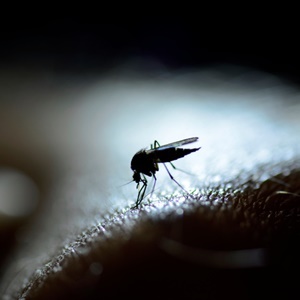
Over the years Sub-Saharan Africa has been drastically affected by malaria. According to the World Health Organization (WHO), 92% of malaria-related deaths happen in Sub-Saharan Africa.
The disease is spread by the bite of a female Anopheles mosquito carrying the Plasmodium parasite.
New discoveries
Researchers from Duke University have recently discovered the mechanism the Plasmodium parasite uses to survive.
When entering the bloodstream of the host, the parasite heads straight to the host’s liver. After the initial bite, symptoms only appear after about a week. During this time, the parasite manipulates the liver cells of the host to produce a protein called aquaporin-3 (AQP3).
The protein assists with the transportation of nutrients and water into cells. The parasite uses the protein to assist and nourish its replication process.
The parasite replicates thousands of times over until it is finally released into the bloodstream, which carries it throughout the body.
Existing malaria medication focuses on eradicating the parasite in the bloodstream. Remnants of the parasite left behind in the liver may result in a relapse.
Targeting the source
Researchers believe that with a new discovery, they will be able to target the parasite before it replicates and spreads to the rest of the body.
In a Duke University press release, study author and assistant professor Emily Derbyshire, Ph.D., states, “This parasite found a way to manipulate the host's liver cells to make it favourable for this replication event. This suggests that maybe we can develop drugs to try to target the host to prevent malaria."
According to the WHO, in 2015 there were 212 million cases of malaria around the world.
South Africa has made large strides in decreasing malaria-related deaths in the country. 76 people died of malaria in the 2016/2017 season, compared to 460 deaths in 2000. However, last year the lowveld areas of the Limpopo and Mpumalanga provinces were listed as malaria endemic areas.
The development of medication based on the recent discoveries means that millions of lives may soon be saved in malaria-endemic countries.
Nobel Laureate Peter Agre, M.D., the man responsible for discovering aquaporins, comments on the study’s discoveries: “The liver stage is a checkpoint, a bottleneck, where it goes from a few dozen parasites to many thousands of parasites, which are released from the liver into the blood where it is amplified into hundreds of billions of parasites. If we could put out the forest fire when it is the smallest possible little campfire, that would be a potential therapeutic breakthrough”.
Image credit: iStock




 Publications
Publications
 Partners
Partners














